Community Health Workers
Community health workers can play a vital role in improving health, reducing costs, and targeting health disparities. Here are some resources to learn more.
What is a community health worker?
Community health workers are frontline public health workers who act as a bridge between their communities and the health care and social service systems. They build trusting relationships and learn about the lives of their clients, the resources and needs of their communities, and the barriers they face to being as healthy as possible. Community health workers are known by many different job titles and have a wide range of responsibilities. Their work can include helping patients navigate the health care and social service systems, providing support to new parents, connecting people to programs that can address their needs, and ensuring patients can follow their care plan.
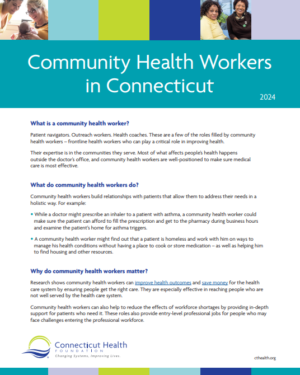
Fact Sheet
Community health workers in Connecticut
What is a community health worker? What do they do and why do they matter? Start here to learn the basics.
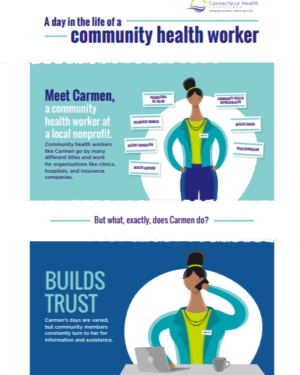
Infographic
A Day in the Life of a Community Health Worker
Community health workers go by many names and do many jobs. Learn more by seeing community health worker Carmen in action.
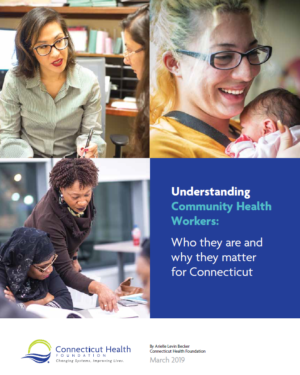
Report
Understanding Community Health Workers: Who They Are and Why They Matter for CT
Read profiles of community health workers and data and research on the workforce.
Why are they important?
Community health worker services can improve health outcomes and save money. They improve patient health by addressing non-medical issues that can influence people’s ability to get or stay healthy. For example, a community health worker could help a patient with diabetes learn to cook healthy meals or help the parents of a child with severe asthma learn how to keep their house free of asthma triggers. Research shows that community health worker services can save money by leading patients to use more appropriate health care services or avoid the emergency department. Researchers identified four models that could be implemented in Connecticut and achieve a positive return on investment. These include having community health workers focus on patients with type II diabetes, children with uncontrolled asthma, adults who frequently go to the emergency department, or adults with cardiovascular risk factors.
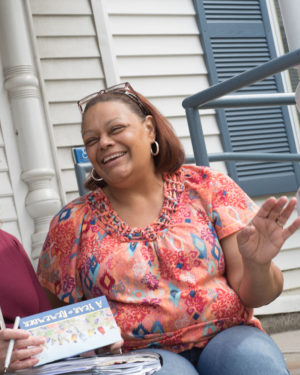
Video
Community Health Workers: Reducing Costs and Disparities
This video illustrates the ways community health workers can help Connecticut reach its health goals: Improving health and reducing disparities.

Brief
Building health through relationships
This brief focuses on four workforces, collectively referred to as health support workers: community health workers, doulas, peer support specialists, and recovery coaches.

Report
Families USA: The Role of Community Health Workers in Advancing Health Equity
This report details studies that indicate community health workers are especially valuable in reducing health inequities. It also translates evidence into policy recommendations.
Who are they?
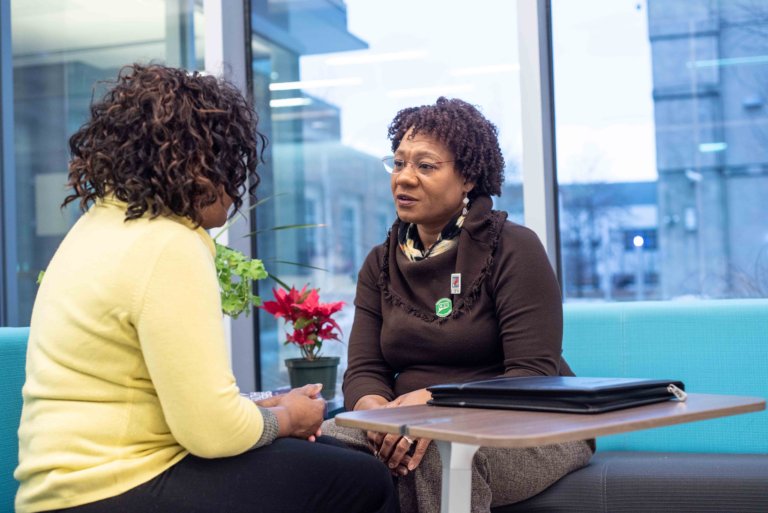
Community health workers are typically trusted members of a community or people who are able to build trusting relationships with patients. State and national surveys indicate that the vast majority of community health workers are women and most are people of color.

Profile
Breastfeeding peer counselor
Yaisa Burgos is a breastfeeding peer counselor at the Hispanic Health Council in Hartford.

Profile
SNAP grant coordinator
Loretta D. Lloyd-Ebron is a SNAP grant coordinator and instructor at Housatonic Community College.

Profile
CHW advocate
Milagrosa Seguinot is the president of the Community Health Workers Association of Connecticut in Bridgeport.
What are other states doing?
Nearly every state is working on ways to better integrate community health workers into the health care system. Many states now pay for community health worker services through Medicaid.
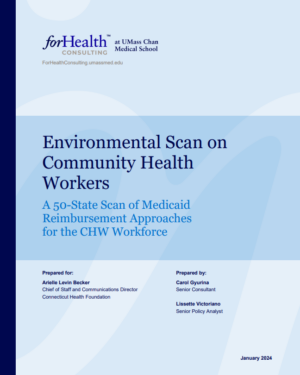
Report
50-state scan of Medicaid payment for community health workers
This report details how each state approaches community health worker services through Medicaid, including what services they cover, the rates paid, and billing codes used.
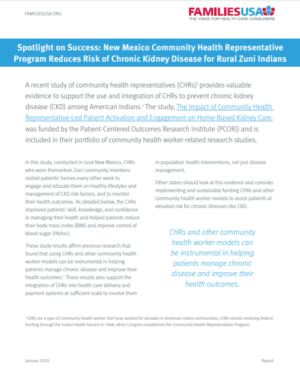
Report
Families USA: Spotlight on Success: New Mexico
This is a deep dive into New Mexico's community health representative program, which has been successful in reducing the risk of chronic kidney disease for rural Zuni Indians.
Putting research into action
Extensive research demonstrates their value, but community health worker services have not yet been fully integrated into the health care system or financed in a sustainable way. In Connecticut, most community health worker programs rely on grant funding, rather than a more stable payment stream through the health care or social service systems. The below reports identify ways to better incorporate community health workers into the health care system, and do so in ways that are sustainable.

Report
Sustainable Financing Models for Community Health Worker Services in CT
This is a blueprint for community health worker interventions that could be implemented by hospital systems, insurers, community organizations and others. Each intervention is projected to improve health while generating a positive return on investment.
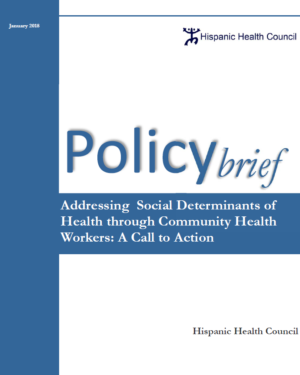
Report
Hispanic Health Council: Addressing social determinants of health through community health workers
This policy brief contains policy recommendations on topics including payment, caseload, recruitment and training, all focused on how to best use community health workers to improve health and well-being.
Topic Guides
External resources
-
Interested in getting certified as a CHW in Connecticut?
Learn more -
Stay updated on what Connecticut is doing
Take action
